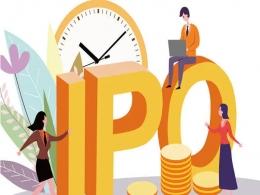Forbes magazine labeled Groupon the world's fastest growing corporation. And that didn't hurt the company's valuation when it went public in November, 2011.
But after trading up for a couple of months, at the beginning of March Groupon turned down and has since lost 75% of its market capitalization. Groupon is now valued at about $3.6B - approaching half of what Google offered to pay for the company in 2011 before leadership decided to go public.
And nobody, absolutely nobody, can be happy about that.
Groupon pioneered the use of digital coupons in a way that created an explosive new market for local business. Paper coupon use had been declining for years. But when Groupon made it possible for on-line individuals to achieve deep discounts on products in local stores using emailed coupons masses of people started buying. From nothing in June, 2009, by June, 2010 revenues grew to an astonishing $100M. Then, between June, 2010 and June, 2011 revenues exploded 10-fold, reaching the magical $1B. Forbes was not wrong - as this was an astonishing growth accomplishment.
Google, Yahoo, Amazon and other suitors quickly recognized that this was not a fad - but a true growth market:
People like deals, and coupons could be successful when updated to modern technology
Local programs were extremely hard for internet-wide companies like Google, and Groupon had "cracked the code" for acquiring local-market customers
Some Groupon programs had simply astounding results - far exceeding the offerer's expectations. The downside was the businessess complained about how much the discounts cost them as success exceeded expectations. The upside was it demonstrated the business had remarkable reach and success.
As mobile use grows Groupon can interact with location apps like Foursquare to allow local merchants to target local customers for rapid sales. Combine that with Twitter distribution and you could have extremely effective local store targeted marketing programs - previously unavailable on the web.
Groupon reached a scale allowing it to potentially work with national consumer goods companies like PepsiCo or P&G and their local retailers on new product launches or market specific sales programs, something not previously done via digital networks.
Ah, but problems have emerged at Groupon. Although none of them really change the above items:
- Groupon was caught in an accounting snafu indicating the company overstated revenue
This last point is extremely deadly. Groupon's growth rate has fallen from 1,000% to about 35%! Further, Groupon is dangerously close to a growth stall, which is 2 consecutive quarters of declining revenue. Only 7% of companies that incur a growth stall maintain a consistent growth rate of even 2%!! Groupon's value is completely based upon maintaining high growth. So regardless of anything else - including profitability - unless Groupon can find its growth mojo then investors are screwed!
Has the market for daily deals declined? Not according to Yelp and Amazon, which continue growing their markets. Consumers are still smarting from a bad economy, and love digital coupons. The problems at Groupon do not appear to be that the market is disappearing - but rather that management simply does not know what to do next.
Groupon was a rocket ship of growth, and founding CEO Andrew Mason deserves a lot of credit for building the sales machine that outperformed everyone else - including Google and Amazon. But the other side of his performance was complete inexperience in how to manage finances, operations or any other part of a large publicly traded corporation. Unprofessional analyst presentations, executive turnover, disrespectful comments to investors and chronic unprofitability all were acceptable if - and only if - he kept up that torrid growth pace. If he can't drive sales, what's the benefit of keeping him in the top job?
Groupon is a remarkable company, in a remarkable market. But it has incredibly tough competition. Seasoned tech investors know that as fast as Groupon sales went up, they can go down. With smart, well managed competitors in their markets there is no room for error - and no time. Groupon has to keep the growth going, or it will quickly be overwhelmed by bigger, smarter companies - remember Palm? RIM?
It's not too late for Groupon. It is #1 in its market. Groupon has the most users, the most customers and by far the most salespeople. Groupon has other products in the pipeline which solve new needs and can extend sales into other emerging market opportunities. But Groupon will not survive if it does not recapture growth - and it's time for a CEO with the experience to do just that. Mr. Mason does not appear to be the next Jeff Bezos or Steve Jobs, so Groupon's Board better go find one!
(Adam hartung is the managing director at Spark Partners.)






